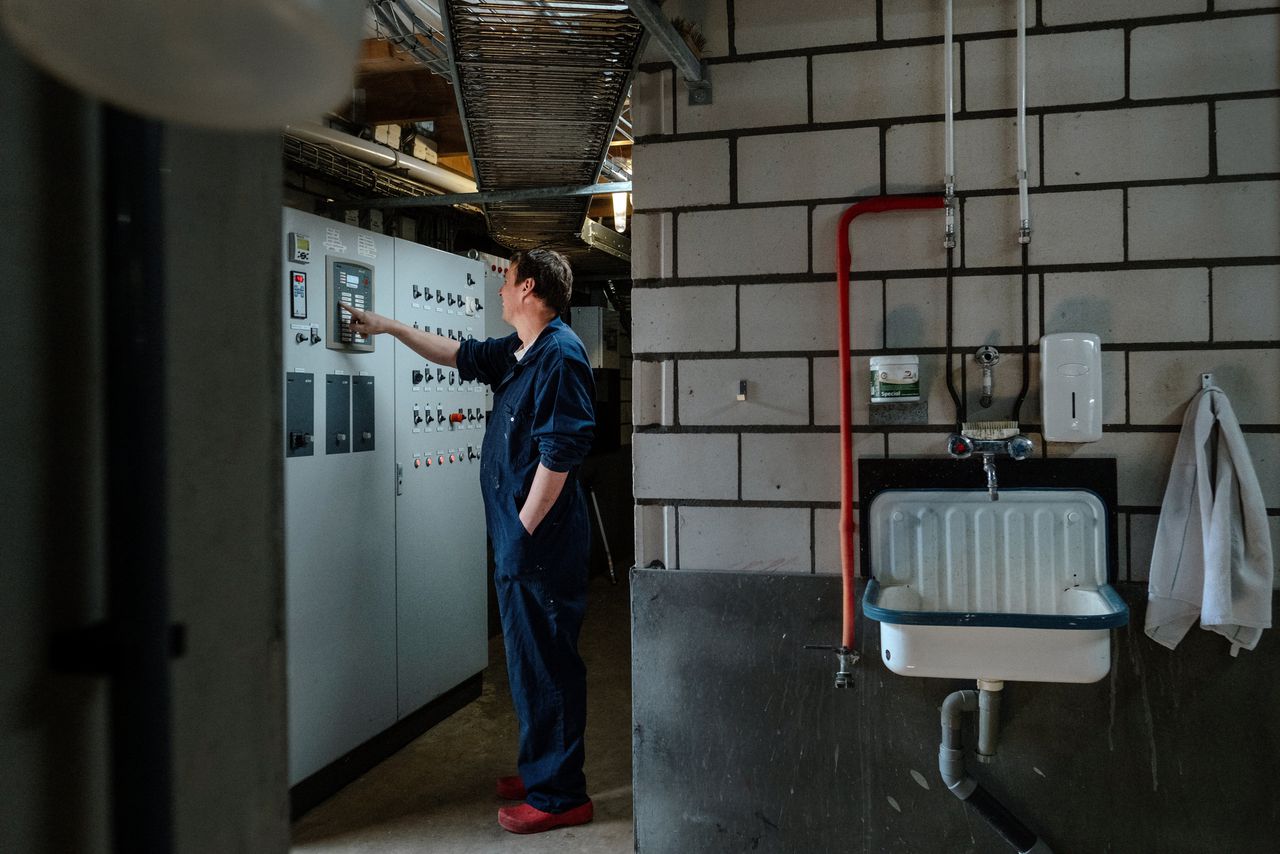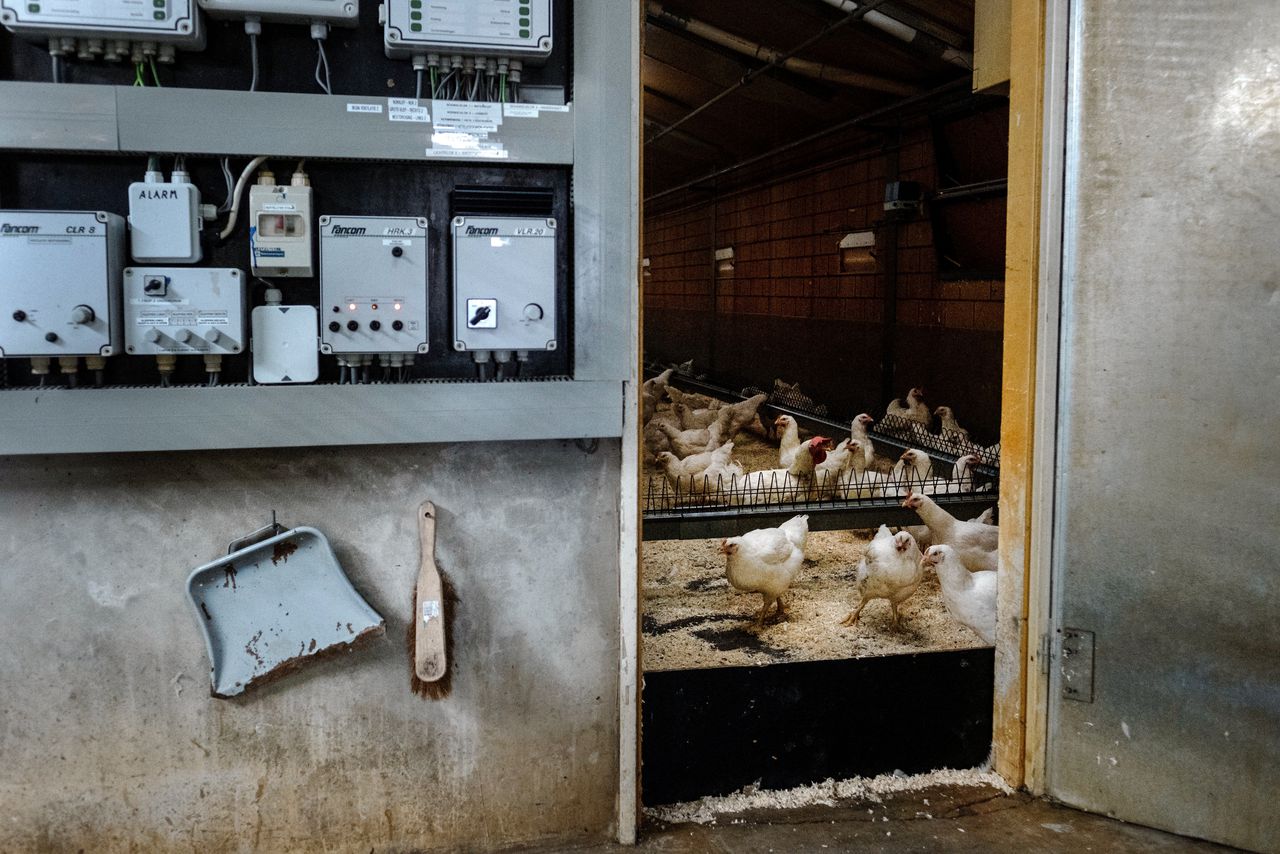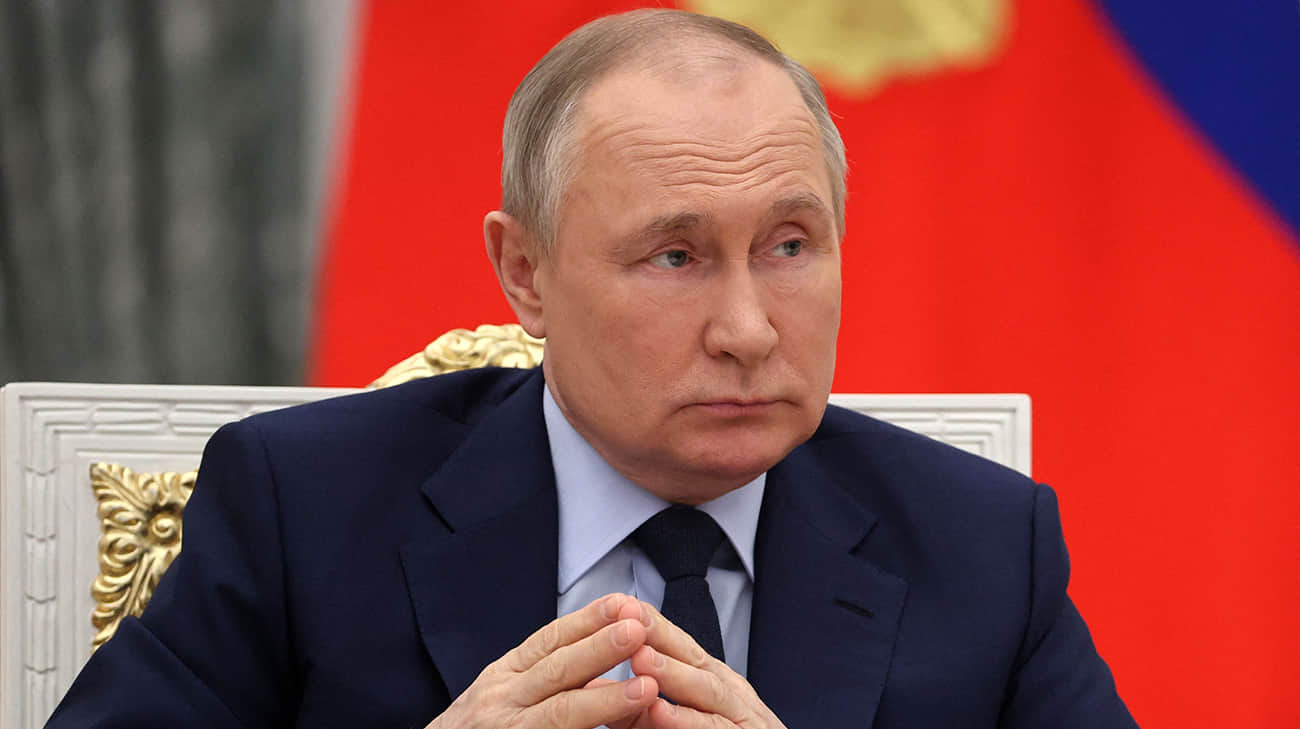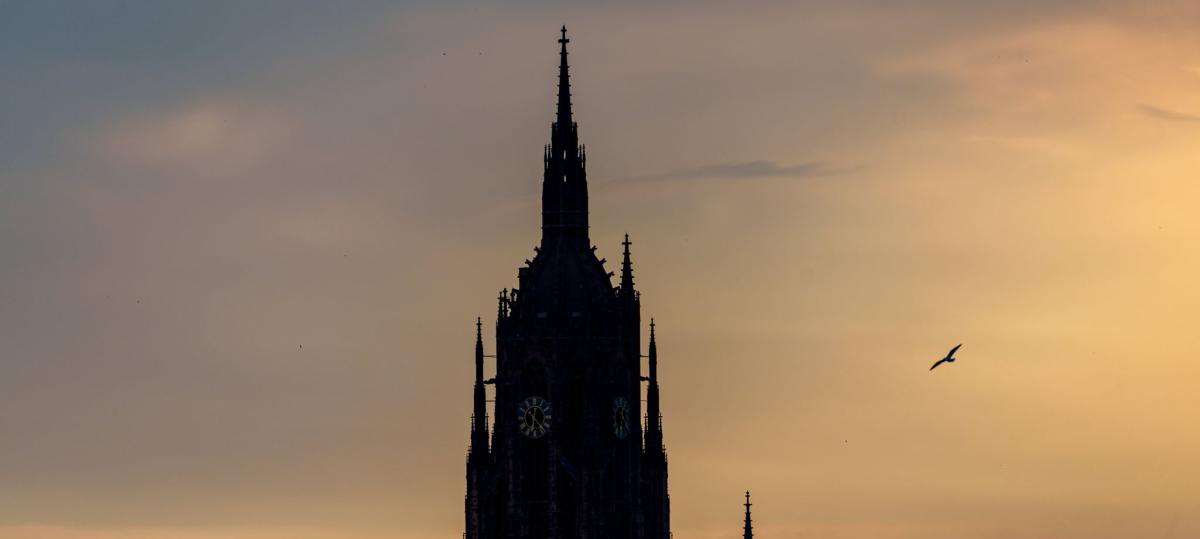The chicken farmer does his work legally but must come to court as a peak call: ‘I slept very badly’
:format(webp)/s3/static.nrc.nl/wp-content/uploads/2025/02/19154924/data128261597-ca8de8.jpg)
The family of chicken farmer Frank Rooijakkers was there when Turfstekers went to the border of Brabant and Limburg in 1853 to reclaim the swamp. Exciting, selling peat, making the land inhabitable. For example, the first stable came here on the edge of the village of Helenaveen, a house next to it. Since then, the Rooijakkers family is booming in this area.
The stable is one hundred meters long, with 35,000 chickens and machines that automatically pick the eggs. It was the last part of the Peel that was excavated. At about 350 meters from the house, what is now a protected nature reserve. There, nature organizations try to restore the old Veenmoer ash. High peat area is, special in Europe, one of the few places in the area where all kinds of migratory birds can breed and rest. Wetter also leads to a strongly raised storage of CO2which contributes to achieving goals from the climate agreement.
Frank Rooijakkers grew up on this yard. October last year he was able to take over the company from his father Frits (67). Now Frank, who previously worked as a representative in animal food, has four own poultry farms in the area with a total of 150,000 chickens. He has worked towards here all those years.
But while the takeover process was in full swing last year, the survival of the company in Helenaveen suddenly turned out to be uncertain. Environmental organization MOB wants the province of Noord-Brabant to take measures to decimate the nitrogen emissions of the company. « At first I thought: hopeless mission, because we have all the permits. But when the lawsuit started I became nervous, » says Frank Rooijakkers in the canteen next to the chicken stable. There he tells for the ruling what it does with a farmer to suddenly have to appear in court.
Unrest among farmers
The business is one in a series of lawsuits that Purifies Mob (Mobilization for the Environment) with the aim of reducing the nitrogen emissions of farmers. In four provinces, lawsuits have started that, in the most extreme case, can ensure that forty farms lose their permits. The cases are being conducted against provinces, which are about granting permits, but in practice it concerns individual farms. It leads to great unrest among farmers, who are afraid that – even if they work legally – they can lose their business.
Milie Club Mob, which is led by chemist Johan Vollenbroek, gained national fame in 2019 when it ensured that the Nitrogen Approach Program (PAS) was declared in violation of European legislation. Thousands of farmers have since been working without a permit to emit nitrogen. The Netherlands ended up in a so -called ‘nitrogen crisis’.
As a result, many farmers no longer receive permits, for example to expand, and tens of thousands of homes can be in the coming years not be built. The cabinet wants to come up with a plan soon to get out of the nitrogen crisis. And that is also necessary: different judicial judgments do not leave the cabinet room nothing to do.
Read also
Eight important questions and answers about the nitrogen crisis
In recent years, Mob has focused on tackling large emotors in court, such as coal -fired power stations and biomass plants. Two years ago Vollenbroek announced That individual farms would also be tackled, even if they had a legal permit, because, according to Mob, there is ‘zero comma zero shot’ in scaling out emissions. Vollenbroek, on the phone: « I understand that fiercely for those companies. But they are all peak basters and politics have been failing for more than ten years. »
Seven trucks chickens
The chickens are delivered again in Helenaveen. Seven trucks full. They come to Brabant when they are twenty weeks old. After a few weeks in the stable, they start laying eggs. The eggs are stored and kept up to temperature, after which another company comes to collect the hatching eggs.
On the other companies, the family also has chickens from which they sell the eggs. It is about large numbers, much more than father Frits and his wife Tiny used to have on their one farm. « In the past you had enough of eight thousand chickens, » says Frits from the other side of the table in the canteen, where he was joined. There are colored eggs on the table, a barrel of salt.
The purchase prices for, for example, food were lower in the time of Frits and energy now also costs more. That is why here applies what applies to many farms: scaling up or stopping. Frank Rooijakkers sought it in taking over other farms, because expanding is impossible due to the nitrogen crisis.


Photos Merlin Daleman
All those chickens provide manure, which means that the company emissions a lot of nitrogen. Yes, says Rooijakkers, « I am a Piekelaster, » a large exterior. A document that the province submitted during the court case states that the precipitation caused by the company in Helenaveen is an average of 3.5 ‘mole’ per hectare per year on the Deurnsche and the Mariapeel. The tax on that part of the Peel is about four times higher than the standard for peak loaders. The precipitation on other protected nature reserves in the neighborhood is not yet included. The precipitation is so high, because the company is very close to the protected Natura2000 area.
In Asten, where Frank Rooijakkers now lives, he and his wife – the company used to be her parents – already started in 2014. Then he received permits to expand and renew the company. There the stables have a heat exchanger and walls that filter fine dust. The manure is aerated to dry in, so that less nitrogen ‘escapes’. « I am a farmer who wants to move forward, » he says, but he no longer receives permits to renovate the company in Helenaveen.
If the municipality or the province were already trusting that by renewing its emissions, they would not dare, they do not dare because they can get wet afterwards at the judge. « So we’re stuck, » says Rooijakkers.
In Debate with Vollenbroek
Johan Vollenbroek has also been in the canteen at Rooijakkers. That was at the beginning of January. During the first session day of the lawsuit, in December, the judge said he wanted to visit the farms about which he should make a decision. In addition to the company of Rooijakkers, there are nine other Brabant farmers. As a lawyer, Marieke Toonders assists three other farmers in the case. « For the farmers it was nice to be able to tell their story in their own company. It gives the entrepreneurs a lot of uncertainty. Sometimes they have made considerable investments to make it more sustainable, and then they threaten to get rid of their company – wherever they live in most cases. »
Rooijakkers: « I thought it was important to speak the judge and Vollenbroek once. Because I think it is very strange that someone I have never seen suddenly asks the judge to decimate emissions and to close my company.
Vollenbroek remembers the conversation as « a very open discussion, » he says. He is not about the individual farmer, but about the government who has to intervene. « The companies know the nitrogen statements very well and also ask for a government that occurs, » he says. « The farmers can be compensated, they can be helped to move their businesses. But it is very clear: the nitrogen emissions must be reduced. And if it is not possible, then we cannot help but tackle the peak loaders ourselves. Moreover, we do many more things, also against large companies. It is only about reducing emissions. »
/s3/static.nrc.nl/wp-content/uploads/2025/04/16162026/data130953399-7f5f31.jpg)
Photo Merlin Daleman
After the visit of the judge, Vollenbroek and the other stakeholders, such as employees of the province, Frank Rooijakkers really became nervous. He had always been familiar with his permits, but he also heard that the judge asked how future -proof his company was, so close to a protected nature reserve. Colleague farmers always ask him: what about? Can we all be charged?
Rooijakkers got a stomach flu that kept nagging for weeks. He didn’t sleep, couldn’t think of much else. He explained everything to the staff, as far as he can, because he did not know which way it would go. He thinks he can survive without the Helenaveen location, but that will not be easy. Father Frits: « And it’s not only the money, isn’t it, it’s also this place, the whole history here. »
Walking in nature
Frits and his wife Tiny used to like to walk with the children in the Peel. They saw deer, ties, all kinds of insects from which they learned the names to their children. Now they rarely get there. Hiking trails are closed to restore nature, water is collected and held. Vollenbroek says that it happens to « save what can be saved » in the nature reserve. Acidification, a low water level and too large nitrogen battle have caused a strong deterioration of nature, is also stated an advice From 2023 of the ecological authority, which was established by the Ministry and Nature Reports of Provinces tests. Measures are therefore desperately needed, according to that organization.
Yet Frank Rooijakkers sees it differently: « I understand that we have to take nature into account, but in this way the bond with that piece of nature falls away. The support for that nature also decreases in the neighborhood. »
A few weeks ago, Rooijakkers got a little hope again. The court in Limburg decided in a similar case of Mob against the province in favor of the farmers. They would retain their permit, also because the province is already taking various measures to reduce nitrogen emissions. Rooijakkers: « Since then I sleep better, because I count on the fact that the court in Brabant will not decide something completely different. »
Victory for Mob
But the court does, it appears this Wednesday afternoon pronunciation. The judge forces the province to take a new decision about the farms involved. « In this case, a permanent, substantial decrease in nitrogen deposition must take place within one year, » the court writes. Unlike in Limburg, the court does not find the measures that the province is taking, for example through the buy -out schemes from farmers.
In short, the companies of Rooijakkers and the colleagues involved ensure so much nitrogen battle that something has to be done. « The province must take appropriate measures for the companies, » the court judges. This can be seen as a victory for MOB, because the environmental organization successfully broke into farmers that work legally. What exactly needs to be done leaves the court in the middle. « Partial withdrawal can be one of the appropriate measures, » says the verdict.
The province must come up with a solution in consultation with the farmers and the environmental associations to reduce emissions. And that is necessary: the court wants a solution within six months.
Frank Rooijakkers will sleep badly again, he said beforehand that the statement would not stand out the side of the farmers. Now he wants to study the ruling well together with his lawyer.
/s3/static.nrc.nl/wp-content/uploads/2025/04/16162031/data130953390-961f1c.jpg)
Photo Merlin Daleman

:format(webp)/s3/static.nrc.nl/images/gn4/stripped/data133314127-765aec.jpg)
:format(jpeg):fill(f8f8f8,true)/s3/static.nrc.nl/wp-content/uploads/2019/10/youp5bij3.png)
/s3/static.nrc.nl/images/gn4/stripped/data133306951-418567.jpg|https://images.nrc.nl/Aqhex4vuXDkTG2ibAuxQ999h3pQ=/1920x/filters:no_upscale()/s3/static.nrc.nl/images/gn4/stripped/data133306951-418567.jpg|https://images.nrc.nl/IUxmNDWQ6SsEQ92WXa797HqINn0=/5760x/filters:no_upscale()/s3/static.nrc.nl/images/gn4/stripped/data133306951-418567.jpg)




